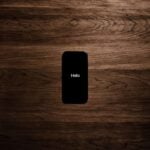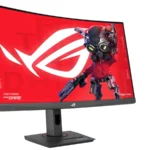Finding the perfect laptop for college can feel overwhelming with so many options available. You want something that balances performance, portability, and price while meeting all your academic needs. A good college laptop should have all-day battery life, a lightweight design, and enough power to handle your coursework without breaking the bank.
Today’s top college laptops include options like the Apple MacBook Air 13 (2024), which offers premium features in a thin, light package perfect for students on the go. For Windows users, the Dell XPS 13 provides excellent battery life and powerful performance in a portable design. Lenovo also offers several student-friendly models that combine performance with exceptional battery life for all your academic requirements.
When shopping for a college laptop, remember to consider what you’ll be using it for beyond basic tasks. Engineering or design students might need more processing power, while liberal arts majors might prioritize portability and battery life. The right laptop will serve as your academic companion throughout your college journey.
Best Laptops for College Students
Choosing the right laptop for college depends on your major, budget, and lifestyle. In 2025, the best laptops balance performance, portability, battery life, and value.
🔹 Key Features Students Should Look For
- Battery Life: At least 8–10 hours for all‑day use.
- Weight & Size: Under 3.5 lbs for easy portability.
- Performance: Latest Intel Core Ultra, AMD Ryzen 8000, or Apple M3 chips.
- Storage: Minimum 512GB SSD (1TB recommended for heavy users).
- RAM: 16GB is the sweet spot; 8GB is entry‑level.
- Budget: $700–$1,500 covers most student needs.
🔹 Best Overall Laptop for College
Apple MacBook Air 15″ (M3, 2025)
- ✅ Ultra‑light, fanless, and powerful enough for most majors.
- ✅ 15‑hour battery life.
- ✅ Great for liberal arts, business, and general use.
- ⚠️ Not ideal for engineering students needing Windows‑only software.
🔹 Best Windows Laptop for Students
Dell XPS 14 (2025)
- ✅ Premium build, sharp OLED display, and strong Intel Core Ultra performance.
- ✅ Excellent keyboard + trackpad for note‑taking.
- ✅ Slim and portable (3.2 lbs).
- ⚠️ Pricey compared to mid‑range options.
🔹 Best Budget Pick
Acer Swift Go 14 (2025)
- ✅ Affordable (~$800).
- ✅ Lightweight, solid battery life (~12 hours).
- ✅ Runs Windows 11 smoothly with Intel Core Ultra or Ryzen 8000.
- ⚠️ Less durable build than premium laptops.
🔹 Best for STEM & Engineering Majors
Lenovo ThinkPad X1 Carbon Gen 12 (2025)
- ✅ Rugged, reliable, and optimized for coding, CAD, and data analysis.
- ✅ Excellent keyboard (legendary ThinkPad quality).
- ✅ Multiple ports (USB‑C, HDMI, Thunderbolt).
- ⚠️ Expensive (~$1,600+).
🔹 Best for Creatives & Design Students
Apple MacBook Pro 14″ (M3 Pro, 2025)
- ✅ Stunning Liquid Retina XDR display.
- ✅ Powerful GPU for video editing, 3D modeling, and graphic design.
- ✅ Long battery life (~13 hours).
- ⚠️ Overkill for students who don’t need creative apps.
🔹 Best 2‑in‑1 Convertible
Microsoft Surface Laptop Studio 2 (2025 refresh)
- ✅ Touchscreen + pen support for digital art and note‑taking.
- ✅ Flexible design (laptop, tablet, presentation modes).
- ✅ Strong performance for both work and light gaming.
- ⚠️ Heavier than traditional laptops (4 lbs).
🔹 Best Chromebook (Budget + Simplicity)
HP Dragonfly Pro Chromebook (2025)
- ✅ Fast, secure, and great for cloud‑based students.
- ✅ 12+ hours of battery life.
- ✅ Excellent keyboard + webcam for remote classes.
- ⚠️ Limited for majors needing specialized Windows/Mac software.
📊 Quick Comparison Table
| Laptop | Best For | Battery | Weight | Price (est.) |
|---|---|---|---|---|
| MacBook Air 15 (M3) | Best Overall | 15 hrs | 3.3 lbs | $1,199 |
| Dell XPS 14 | Best Windows | 13 hrs | 3.2 lbs | $1,499 |
| Acer Swift Go 14 | Budget | 12 hrs | 2.9 lbs | $799 |
| ThinkPad X1 Carbon Gen 12 | STEM/Engineering | 12 hrs | 2.5 lbs | $1,699 |
| MacBook Pro 14 (M3 Pro) | Creatives | 13 hrs | 3.4 lbs | $1,999 |
| Surface Laptop Studio 2 | 2‑in‑1 Users | 11 hrs | 4.0 lbs | $1,599 |
| HP Dragonfly Pro Chromebook | Cloud Users | 12 hrs | 2.8 lbs | $999 |
✅ Final Recommendation
- Most students → MacBook Air 15 (M3) or Dell XPS 14.
- Budget-conscious → Acer Swift Go 14 or Chromebook.
- STEM majors → Lenovo ThinkPad X1 Carbon.
- Creatives → MacBook Pro 14 (M3 Pro).
- Tablet + Laptop flexibility → Surface Laptop Studio 2.
Key Takeaways
- Look for laptops with all-day battery life, lightweight design, and a price that fits your student budget.
- Top choices include the Apple MacBook Air 13 (2024), Dell XPS 13, and various Lenovo student models.
- Consider your specific academic program requirements before making a final decision on processing power and features.
Choosing the Right Laptop for College
Finding the perfect laptop for college requires balancing performance, portability, and comfort. The right device will support your academic needs while fitting into a student’s busy lifestyle and budget.
Understanding Laptop Specs
When shopping for a college laptop, certain specifications matter more than others. Aim for at least 8GB of RAM to handle multiple applications simultaneously, which is essential for research and assignments.
Storage is another key factor. Consider at least 256GB SSD for faster performance and better reliability than traditional hard drives. SSDs also help laptops run cooler and last longer on battery.
For processing power, Intel Core i5 or AMD Ryzen 5 processors provide a good balance between performance and battery efficiency. These mid-range processors handle most college workloads without draining your battery too quickly.
Battery life should be a priority – look for laptops that offer 8+ hours of real-world usage, not just manufacturer claims. This ensures you can make it through a full day of classes without hunting for outlets.
The Importance of a Lightweight Design
College life involves constant movement between dorms, libraries, and classrooms. A lightweight laptop (under 4 pounds) makes this daily commute much easier on your back and shoulders.
Thin designs are preferable as they slip easily into backpacks alongside textbooks and other materials. The Apple MacBook Air (under 3 pounds) and Dell XPS 13 are excellent examples of lightweight yet powerful options.
Consider the laptop’s overall dimensions too. A 13-inch screen offers a good balance between usability and portability for most students. Larger screens provide more workspace but add weight.
Durability matters in a portable device. Look for solid construction and materials that can withstand being carried around campus. Some laptops offer military-grade testing certifications for added peace of mind.
Selecting a Comfortable Keyboard
The keyboard is often overlooked when choosing a laptop, yet it’s crucial for writing papers and taking notes. Look for keyboards with good key travel (1-2mm) and tactile feedback to reduce typing fatigue.
Backlighting is essential for working in dim lecture halls or late-night study sessions. Adjustable brightness levels help conserve battery when full illumination isn’t needed.
Consider the keyboard layout and spacing. Cramped keys can lead to typing errors, while well-spaced keys promote accuracy during long writing sessions. Test the keyboard before purchasing if possible.
Special features like spill resistance can be valuable protection against coffee accidents during late-night study sessions. Some laptops also offer fingerprint readers integrated into the keyboard area for quick, secure logins.
Top Laptops for College Students
Finding the right laptop can significantly impact a student’s college experience. The ideal choice balances performance, portability, and price while meeting specific academic requirements.
Best Budget-Friendly Options
Students on a tight budget have several excellent options that don’t sacrifice quality. The HP Pavilion series offers reliable performance with Intel Core i5 processors starting around $500-600, making it perfect for everyday coursework and research.
Chromebooks remain a top choice for affordability, with models from Acer and Lenovo starting under $300. These lightweight devices handle word processing, research, and streaming with impressive battery life.
For those wanting slightly more power without breaking the bank, the Dell Inspiron 14 provides a good middle ground. It features decent specs with Intel Core i5 processors and enough RAM to handle multiple applications simultaneously.
Many budget laptops now include surprising perks like touchscreens, convertible designs, and fast charging—features previously found only in premium models.
Best Laptops for Performance and Multitasking
The Asus Zenbook 14 OLED Touch stands out as a top performer for college students in 2025. Its gorgeous display, powerful processor options, and excellent battery life make it ideal for intensive multitasking.
For Apple fans, the MacBook Air 13 (2024) delivers exceptional performance in an incredibly thin, lightweight package. Its all-day battery life and powerful chip make it perfect for students constantly moving between classes.
Students needing serious horsepower should consider laptops with Intel Core i7 processors and dedicated graphics. The Dell XPS 13 combines premium build quality with outstanding performance in a portable package.
For those who game between study sessions, laptops with NVIDIA GeForce RTX 4050 graphics provide enough power for both academic work and entertainment without the bulk of traditional gaming laptops.
Best Laptops for Specific Majors
Engineering and design students require more specialized machines. The MacBook Pro remains popular for its excellent color accuracy and powerful performance needed for CAD software and 3D modeling.
For computer science majors, laptops with Intel Core i7 processors and at least 16GB of RAM provide the necessary power for programming, virtual machines, and development environments.
Art and design students should prioritize display quality. The Asus Zenbook 14 OLED offers exceptional color accuracy and a touchscreen that works well with digital pens.
For business majors, reliability and battery life often matter most. The Dell Inspiron 14 Plus provides a professional look with enough power for spreadsheets, presentations, and business software.
Healthcare and science students might prefer convertible laptops that can function as tablets for note-taking during labs and clinical rotations.
Essential Features for College Laptops
When selecting a laptop for college, certain features can make a significant difference in your academic experience. The right mix of battery life, display quality, and connectivity options ensures your device meets the demands of student life.
Battery Life Considerations
A college laptop should offer at least 8-10 hours of battery life for all-day performance without constantly hunting for power outlets. Many top student laptops, like the Apple MacBook Air (2024), deliver impressive battery performance that can last through multiple classes and study sessions.
Battery efficiency becomes particularly important during long lecture days or when libraries get crowded. Look for laptops with fast-charging capabilities that can provide several hours of use from just 30 minutes of charging.
Energy-saving features such as adaptive brightness and power management settings can help extend battery life. The processor type also impacts battery performance—newer ARM-based chips like Apple’s M3 typically offer better efficiency than traditional x86 processors.
Display Quality and Resolution
A quality display makes a significant difference for reading digital textbooks and working on projects. A minimum of 1080p (FHD) resolution is recommended for comfortable viewing without straining your eyes.
OLED displays, like those found on the Asus Zenbook 14 OLED Touch, provide better contrast and color accuracy—helpful when working on visual projects or watching educational videos. Some key display features to consider:
- Screen size: 13-14 inches balances portability with usability
- Resolution: At least 1920×1080 (FHD) for clear text
- Brightness: 300+ nits for outdoor visibility
- Anti-glare coating: Reduces eye strain during long study sessions
Touch screens can be beneficial for note-taking and creative work, though they typically cost more and may impact battery life.
Connectivity and Port Options
A diverse selection of ports eliminates the need for dongles and adapters. A college laptop should include:
- At least 2 USB ports (preferably including USB-C)
- HDMI output for presentations
- Headphone jack
- SD card reader for transferring photos and files
Wireless connectivity is equally important. Look for laptops with current Wi-Fi standards (Wi-Fi 6 or better) for reliable connections in crowded campus environments.
Port selection becomes particularly relevant when connecting to classroom technology or setting up a study space. The Acer Aspire 5 offers a good variety of ports at a reasonable price, making it practical for students who need to connect multiple devices simultaneously.
Frequently Asked Questions
Choosing the right laptop for college requires careful consideration of several factors including performance needs, portability, budget constraints, and program requirements. These questions address common concerns students have when making this important purchase.
What features should be prioritized when choosing a laptop for college?
Battery life should be a top priority for college students. A laptop that lasts through a full day of classes (8+ hours) prevents the stress of finding outlets in busy lecture halls.
Portability matters significantly since students carry laptops between classes. Devices weighing under 4 pounds with screen sizes between 13-14 inches offer the best balance between usability and portability.
Processing power needs vary by major. Engineering and design students need more powerful processors like Intel Core i5/i7 or AMD Ryzen 5/7, while humanities majors can often manage with less powerful options.
Which laptop brands are most reliable for college student use?
Apple MacBooks consistently rank high for reliability with excellent build quality and longevity, though they come at premium prices. Their support services also receive high marks from students.
Asus offers excellent reliability at mid-range prices. Their Zenbook series, particularly the Zenbook 14 OLED Touch, provides a great balance of performance and durability according to PCMag.
Dell and HP produce reliable Windows machines with good customer support. Dell’s XPS series and HP’s Envy line are particularly well-regarded for student use.
How do you find high-quality laptops suitable for students on a budget?
Look for last year’s models which often see significant discounts when newer versions are released. The performance difference is usually minimal for student needs.
Consider certified refurbished laptops from manufacturer outlets. These machines undergo thorough testing and typically include warranties, offering substantial savings.
Student discounts can provide significant savings. Many manufacturers offer education pricing that can save hundreds of dollars on new machines.
What are the best laptops for college students that combine performance and affordability?
The Asus Zenbook 14 OLED Touch is currently a top recommendation according to PCMag. It offers excellent performance, battery life, and a beautiful touchscreen at a reasonable price point.
Lenovo’s IdeaPad and ThinkPad E series provide solid performance at mid-range prices. These machines offer good build quality and enough power for most academic tasks.
For Windows users on a tight budget, the Acer Swift series provides decent performance and good battery life at entry-level prices.
How much should a college student typically spend on a laptop?
Most college students should budget between $600-$900 for a laptop that will last throughout their academic career. This price range typically provides machines with sufficient performance for most majors.
STEM majors requiring specialized software should consider budgeting $900-$1,300 for machines with better processors and more RAM. These additional resources prevent frustration when running demanding applications.
Budget-conscious students can find adequate options between $400-$600, though these may need replacement sooner or have limitations for certain tasks.
What are the recommended specifications for a student’s laptop?
Processor: At minimum, an Intel Core i5 or AMD Ryzen 5 processor provides adequate performance for most student needs. More intensive programs may require i7/Ryzen 7 or better.
RAM: 8GB is the absolute minimum for decent performance in 2025. 16GB is recommended for most students, especially those using multiple programs simultaneously.
Storage: 256GB SSD is sufficient for basic needs, but 512GB provides more flexibility. Cloud storage can supplement local storage for budget options.
Display: A 1080p screen is sufficient for most users. Those in graphic design or media should consider higher resolution options.







